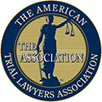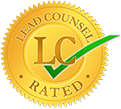The U.S. Food & Drug Administration (FDA) has received nearly 5,500 reports of adverse events / side effects regarding Merck & Co.’s NuvaRing – a vaginal ring that releases low doses of estrogen and progestin over a three-week period to prevent pregnancy. While NuvaRing side effects vary, the FDA reports that three side effects comprise about half of all those reported.
Most Common NuvaRing Side Effects
The FDA has received nearly 5,500 reports of NuvaRing side effects from 1997 to 2013. The majority of those (4,974 reported side effects) have been categorized through June 30, 2012. The following were the three most commonly reported and comprise 47% of all reported NuvaRing side effects through that time:
- Pulmonary Embolism. A pulmonary embolism (PE) is a very serious condition that results from a blood clot in a deep vein that can break off and travel through the bloodstream. It can travel to an artery in the lungs, block blood flow, damage the lungs and other organs in the body and cause death. The FDA received 1,020 reports of pulmonary embolism adverse events – which comprises 21% of all serious NuvaRing side effects reported.
- Deep Vein Thrombosis. Deep vein thrombosis (DVT) is a blood clot that forms in a vein deep in the body. Most deep vein blood clots occur in the lower leg or thigh, but they can also occur in other parts of the body. The FDA received 718 reports of DVT adverse events – which comprises 14% of all serious NuvaRing side effects reported.
- Metrorrhagia. Metrorrhagia is uterine bleeding at irregular intervals that generally occurs at times other than expected menstrual periods. It may be caused by uterine lesions and be a sign of a urogenital malignancy such as cervical cancer. The FDA received 594 reports of metrorrhagia adverse events – which comprises 12% of all serious NuvaRing side effects reported.
Every drug can have risks and side effects. However, a drug or medical device that has caused thousands of serious injuries – some resulting in death – may be simply too dangerous to remain on the market. Many consumer advocates and those who have filed NuvaRing injury claims believe that Merck & Co. and its subsidiary, Organon, should have instituted a NuvaRing recall years ago. Yet, the product remains on the market.
Have You Been Injured?
If you have suffered one of the above NuvaRing side effects, or any other, contact The Driscoll Firm, LLC, to discuss your situation and determine whether you might be entitled to compensation for your medical and hospital bills, income you may have lost and any physical or emotional pain and suffering you may have experienced.







